Major Power Relations
Your Present Location: PROGRAMS> Major Power Relations-
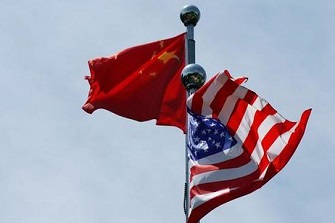
Chinese, US diplomats set to meet
China's State Councilor Yang Jiechi and US Secretary of State Mike Pompeo were reportedly due to meet in the US state of Hawaii on Wednesday, which would be the first meeting between such senior officials since the two nations signed the phase one trade deal in January. The meeting comes amid fast-worsening China-US ties in the first half of 2020. Yang, who is also a member of the Political Bureau of the CPC Central Committee and head of the Office of the Foreign Affairs Commission of the CPC Central Committee, would meet Pompeo as the latter is trying to ease tensions between the world's two largest economies over various issues, Reuters reported on June 13.
2020-06-18 -

Indian hawks, biased media, right-wing political groups should stay rational amid China-India border clash
The clash between China and India on the border that reportedly led to the deaths of 20 Indian soldiers has reignited anti-China sentiment in India and a wave of "de-Sinicization" among Indian citizens. Some of India's hawkish politicians and media have also hyped up the conflict. Indian Punjab Chief Minister Amarinder Singh said on Tuesday that "It is time now for the government of India to take some stringent measures. Each sign of weakness on our part makes the Chinese reaction more belligerent. I join the nation in paying tribute to our brave martyrs. The nation stands with you in your hour of grief," India media reported.
2020-06-18 -

Israeli businesses remain eager for Chinese market despite mounting pressure from US
Bilateral business activities between China and Israel have been making progress despite the COVID-19 pandemic disrupting normal communications, and the two sides are looking forward to strengthening cooperation and business expansion in the post COVID-19 period. The close business ties between China and Israel, particularly in the high-tech sector, won't be dented by the US, business representatives and experts told the Global Times.
2020-06-17 -
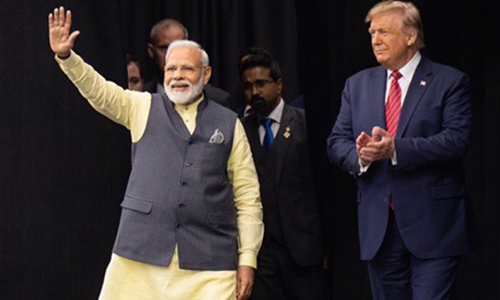
Liu Zongyi: India plays with fire spicing up G7 expansion
Indian Prime Minister Narendra Modi responded positively to US President Donald Trump's proposal of expanding G7 into a G11 or G12 that includes India. In a phone conversation on Tuesday, Modi commended Trump for his creative and far-sighted approach, acknowledging the fact that such an expanded forum would be in keeping with the emerging realities of the post-COVID-19 world, according to a statement by the Indian Ministry of External Affairs.
2020-06-08 -
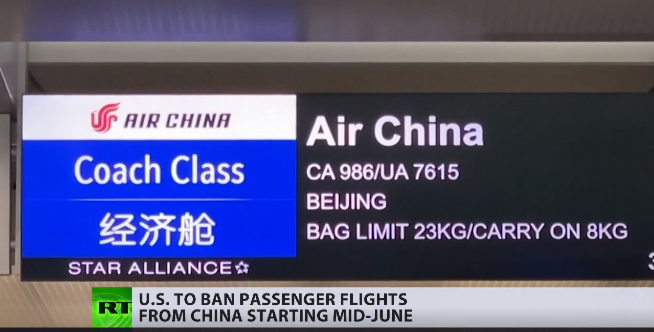
Wang Wen: Ban or open at will, US suspending on Chinese airlines is unreasonable and hegemonic
The United State plans to suspend passenger flights to China later this month. Russia's top international media "Russia Today" (RT) gave an exclusive interview with Wang Wen, the Executive Dean of Chongyang Institute for Financial Studies at Renmin University of China (RDCY) on this issue. The following is the full text of the interview.
2020-06-05 -
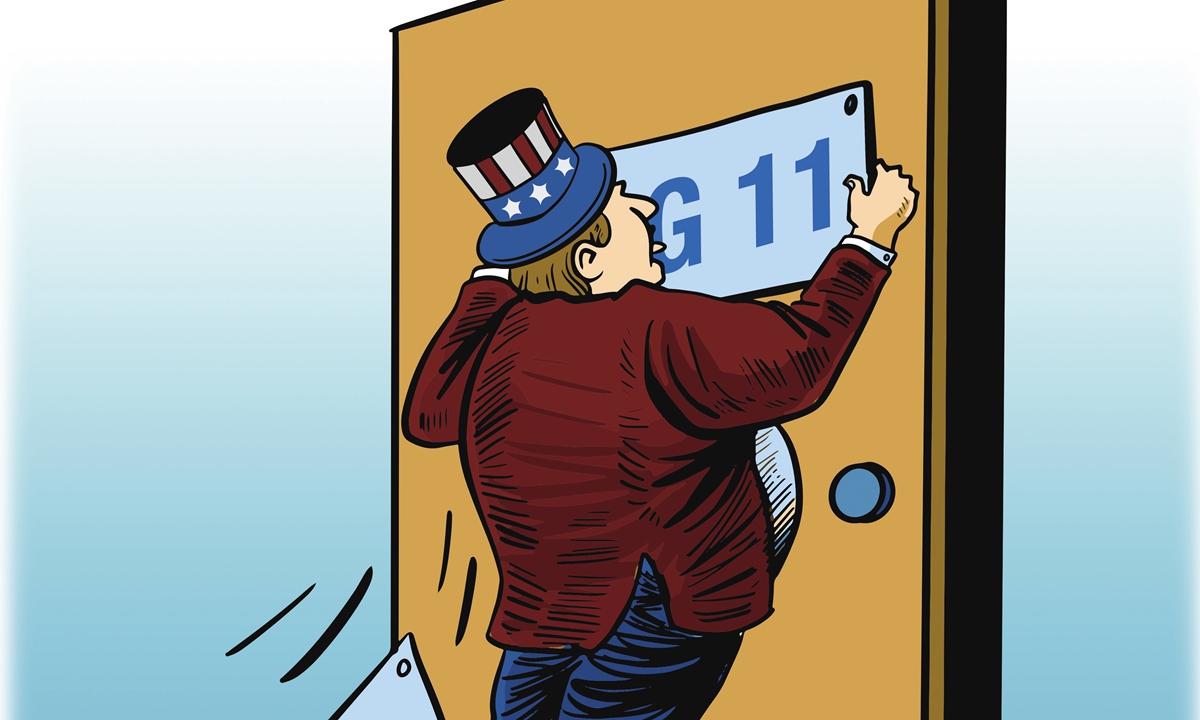
Li Wei: Can Washington expand G7 in anti-Beijing move?
The US, this year's host country for the G7 summit, reportedly intends to form a "G11" by inviting South Korea, Australia, Russia and India to attend the meeting that has been postponed until at least September. But how well the US has maintained its global leadership capacity is in question, as is whether or not it will be able to use the summit as a platform to promote its anti-China agenda. That the US intends to invite new countries to attend is not shocking as G7 summits have adopted a G7-plus mechanism and the host country is permitted to issue invitations.
2020-06-05 -
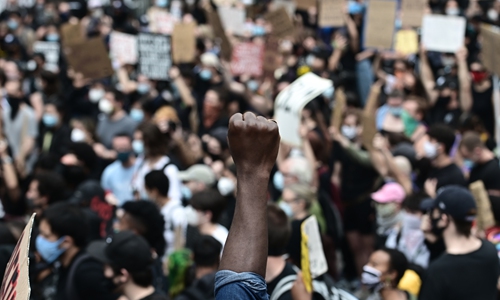
Zhao Minghao: Riots and COVID-19 serious US governing crises
US riots have further intensified as violent clashes have erupted in over 70 cities with more than 40 imposing curfews. This has taken place when the US is plagued by the spreading COVID-19 epidemic, a severe economic downturn and the highest unemployment rate in decades. With such catastrophes, the Trump administration is facing a "perfect storm."US President Donald Trump and his core aides should be blamed for the escalation of the riots.
2020-06-04 -

He Weiwen: US to suffer more if it decouples with China
The United States' stigmatization of and hostile actions toward China have, among other things, raised concerns that China might be isolated from the global supply chain and its economy decoupled from that of the US, especially in high-tech and trade.The US high-tech ban on China targets 5G technology, cyber communications, semiconductor chips and artificial intelligence, in a bid to prevent China from challenging the US' dominant role in world trade. Such measures, though they will cause difficulties for Huawei and other Chinese companies in the short term, will result in just the opposite in the long run.
2020-06-03 -

He Weiwen: Wild Allegations vs. Facts
As the COVID-19 pandemic ravages the world, with total cases growing rapidly by the day, U.S. Secretary of State Mike Pompeo has been busy blaming China with unsupported “lab conspiracy” claims and calling the coronavirus the “Wuhan virus.” He presumes to hold China accountable for the origin of the virus and a purported “cover-up.” The attorney general of the state of Missouri filed a lawsuit seeking compensation from China. President Donald Trump shared the allegations. Similar charges and threats against China have come from a few people in European countries, India and Australia, demanding reparations.
2020-05-11 -

Zhao Minghao: Can China, U.S. Emerge Unscathed?
As COVID-19 sweeps across the world, its multifaceted impact on China-U.S. relations is increasingly prominent. A view held in some strategic circles in the United States is that China is using the pandemic in a disinformation campaign designed to elevate its own global influence. As China leads the world recovery, this thinking goes, it will exploit the opportunity to shape the post Covid-19 world.
2020-05-07 -
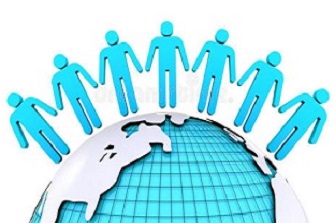
Danilo Türk: Cooperation, leadership vital to defeat pandemic
There is no doubt that the current, unprecedented global economic slowdown caused by the novel coronavirus pandemic requires unprecedented measures of global cooperation. However, the current global action is sadly insufficient and the future looks uncertain.True, the Extraordinary G20 Leaders' Summit offered a glimmer of hope. Several good proposals were made, but they were not given adequate attention in the international media and in the work of decision-makers. Many are focusing on other themes, mainly revolving around the statistics of the pandemic and its victims, and on measures taken at the level of countries.
2020-04-27 -
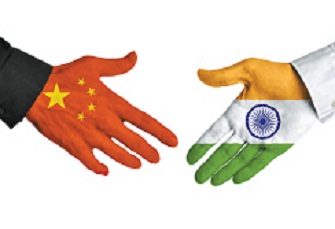
Liu Zongyi: China, India need common front to confront COVID-19
The coronavirus pandemic has severely impacted almost every country, and many of the world's leading politicians and scholars are now discussing world order after the crisis. The pandemic will indeed change many things, but for the international political and economic landscape, it will be more of a catalyst, accelerating or revealing political and economic processes that already existed but are not so apparent.
2020-04-27 -
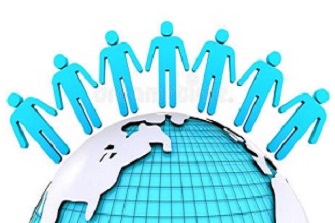
Danilo Türk: Cooperation, leadership vital to defeat pandemic
There is no doubt that the current, unprecedented global economic slowdown caused by the novel coronavirus pandemic requires unprecedented measures of global cooperation. However, the current global action is sadly insufficient and the future looks uncertain.True, the Extraordinary G20 Leaders' Summit offered a glimmer of hope. Several good proposals were made, but they were not given adequate attention in the international media and in the work of decision-makers. Many are focusing on other themes, mainly revolving around the statistics of the pandemic and its victims, and on measures taken at the level of countries.
2020-04-27 -

Danilo Türk: Cooperation, leadership vital to defeat pandemic
There is no doubt that the current, unprecedented global economic slowdown caused by the novel coronavirus pandemic requires unprecedented measures of global cooperation. However, the current global action is sadly insufficient and the future looks uncertain.True, the Extraordinary G20 Leaders' Summit offered a glimmer of hope. Several good proposals were made, but they were not given adequate attention in the international media and in the work of decision-makers. Many are focusing on other themes, mainly revolving around the statistics of the pandemic and its victims, and on measures taken at the level of countries.
2020-04-27 -
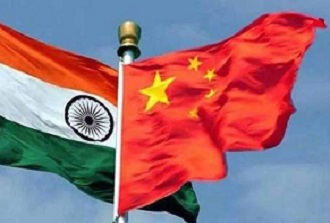
Liu Zongyi: Wuhan 2.0: a Chinese asessment
Faced with ethnic and religious conflicts, territorial disputes, and climate change, water resources crisis, and other non-traditional security threats, China and India as two ancient civilizations, should set an example for the world. The two countries should enhance mutual understanding through people to people exchanges and dialogue between civilizations.
2020-04-23 -
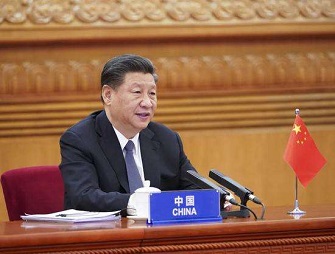
Xi: Cooperation, solidarity key to contagion fight
As the outbreak is spreading worldwide, posing an enormous threat to life and health and bringing a formidable challenge to global public health security, the article said, it is imperative for the international community to strengthen confidence, act in unity and work together in a collective way.Viruses respect no borders, and epidemics do not distinguish between races, it went on, adding that this global public health emergency has driven home the urgency and imperative need to build a community with a shared future for mankind.
2020-04-17 -

West’s pandemic falsehoods debunked
In the midst of the global COVID-19 pandemic, China has worked hard to overcome the peak of the outbreak and people have started to return to work and resume production. It is the hope of people around the world, who are still at the most difficult stage of their anti-virus war, to receive anti-epidemic assistance. Yet some bizarre accusations against China have arisen. This attempt to cast blame on China is designed to divert attention from their own country's inept responses to COVID-19. We must recognize these as obfuscations that so regrettably undermine humanity's efforts to end the pandemic.
2020-04-17 -

He Yafei: Join Hands to Cope
Countries have been upgrading their countermeasures to handle the onslaught, with different degrees of success. The main problem lies in the “disorder” and “fragmentation” of global governance. Countries have largely been working independently without proper coordination, or blending geopolitical considerations with their coronavirus response, lacking the spirit of mutual assistance as envisioned in China’s proposed “community with a shared future for mankind.”
2020-04-09 -

He Yafei: Join Hands to Cope
Countries have been upgrading their countermeasures to handle the onslaught, with different degrees of success. The main problem lies in the “disorder” and “fragmentation” of global governance. Countries have largely been working independently without proper coordination, or blending geopolitical considerations with their coronavirus response, lacking the spirit of mutual assistance as envisioned in China’s proposed “community with a shared future for mankind.”
2020-04-09 -
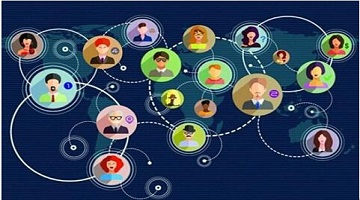
William Jones: The COVID-19 pandemic requires a rethinking of the world order
New viruses may develop. That is not in our power to prevent. But we can develop the ability and the means to tackle any new such threat if we build the international structures in which the world can act together and not behave as a house divided.
2020-04-08
























































































 京公网安备 11010802037854号
京公网安备 11010802037854号





